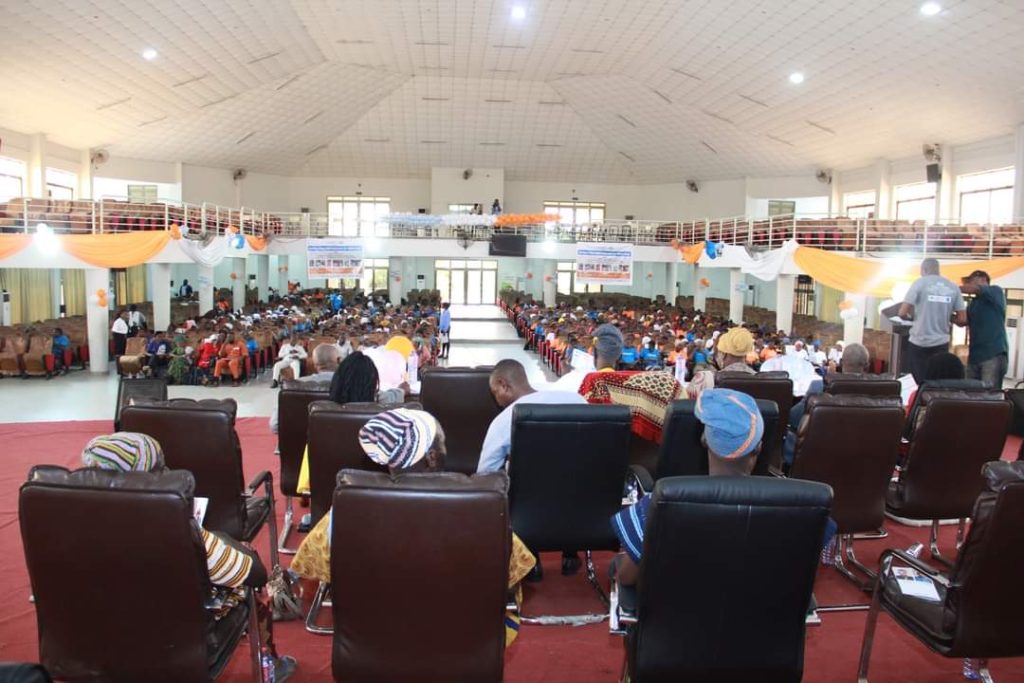By Albert Futukpor
Tamale, Sept. 5, GNA – The Northern Ghana Sexual Reproductive Health Rights (SRHR) Conference for Young People (NORGHA) has opened in Tamale.
It is to bring to bear some of the practical concerns pertaining to SRHR to enable national decision-makers to make informed policies on SRHR.
It is also to provide a secure environment for their opinions on issues pertaining to their SRHR as well as establish a forum where all participants can talk about their concerns related to SRHR without fear or threats.
The four-day conference, organised by Norsaac, a civil society organisation, and its partners, and being attended by over 400 young people and women drawn from the Northern, North East, Savannah, Upper East and Upper West Regions.
It is on the theme: “The Future of Adolescent Girls and Young Women in Ghana: The Threats of Social Norms and the Confusion in Policy on SRHR.”
Mr Alhassan Mohammed Awal, Executive Director of Norsaac, speaking during the opening of the conference in Tamale on Monday, said the conference was also to assess the issue of SRHR so that the best course of action could be taken by policy makers.
Mr Awal said the adolescent stage was a crucial and sensitive period in which the individual went through so many phases of growth, including emotional, physical, and social changes, adding “This is the transitional stage through which an individual moves into adulthood and in relation to that, careful molding is needed at this stage.”

“During this phase, adolescents (girls and boys) need comprehensive SRHR education and support to go through this transitional phase effectively. During this period, most of these young individuals decide on the next steps to take towards having a dignified and confident life,” he added.
He, however, noted, “The sad reality is that social norms and limited understanding of SRHR tend to pose threats to the growth of these young people. Practices including female genital mutilation, early marriage and gender inequalities among others tend to restrict opportunities for girls and young women, who wish to explore and discover the world of endless possibilities.”
He added that resources needed to ensure that policies regarding the SRHR were effectively implemented were limited and most times did not get to where they were needed the most, saying “This hinders the ability of young people, especially young women and girls to strongly make decisions about their prospects.”
Mr Awal touched on the HIV and AIDS situation in the country and said, “As we gather here today, one of the wide-ranging issues that affects the effective implementation and realisation of SRHR among young people is the widening spread of the number of people currently infected with HIV/AIDS. The sad news is that many of those infected are young people under the age range of 24.”
He added that “It is even more alarming to note that the numbers in the northern part of Ghana are increasing significantly among girls and young women. The statistics again shows that in the Northern Region alone, prevalent HIV cases amount to 7,405, Upper East recorded 7,361, Upper West (7,185), Savannah (3,680) and North East recorded (1,743).”
He said many of the infected persons did not contract the disease out of carelessness as most people perceived but were rather abused sexually, adding “Due to poor law enforcements and cultural norms, they are made to live with the burden for the rest of their lives.”
He emphasized that “These statistics, coupled with other socio-economic issues hinder the smooth passage of SRHR policies that would have had a good impact on curbing the rate at which HIV cases and early childbirth are rising. Hence, the general essence for the inception of this conference is to enlighten young people on SRHR, push for the implementation of bills related to SRHR that would see to it that young people understand their sexual rights and effectively apply them in their lives.”
Professor Seidu Al-Hassan, Vice-chancellor, University for Development Studies, lauded the partners for instituting the conference and said it would help empower young girls to take their rightful place in society.
Professor Al-Hassan said young people’s access to SRHR information was crucial to help them to be morally aware of themselves to take the best decisions for their future.
Zugulana Professor Naa Nantogmah Yakubu, Chief of Zugu, who chaired the event, emphasised need for proper upbringing of children and instilling discipline in them to lead responsible lives.
Representatives of OXFAM in Ghana, Regional Advisory Information and Network Systems, National Youth Authority, Ghana Education Service, and Ghana Health Service, among others delivered solidarity messages during the event declaring their support for the conference.
GNA